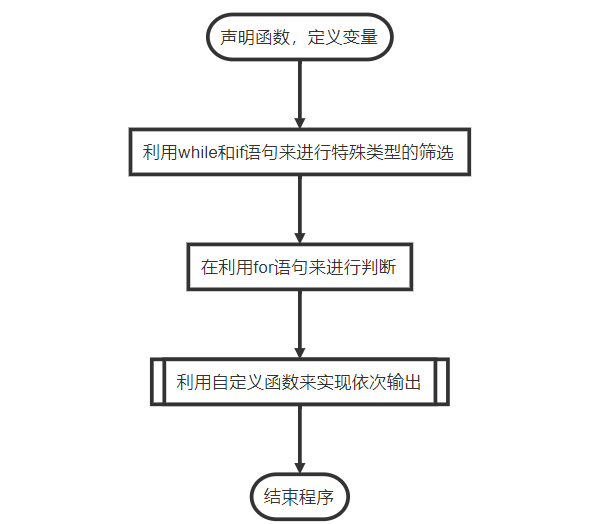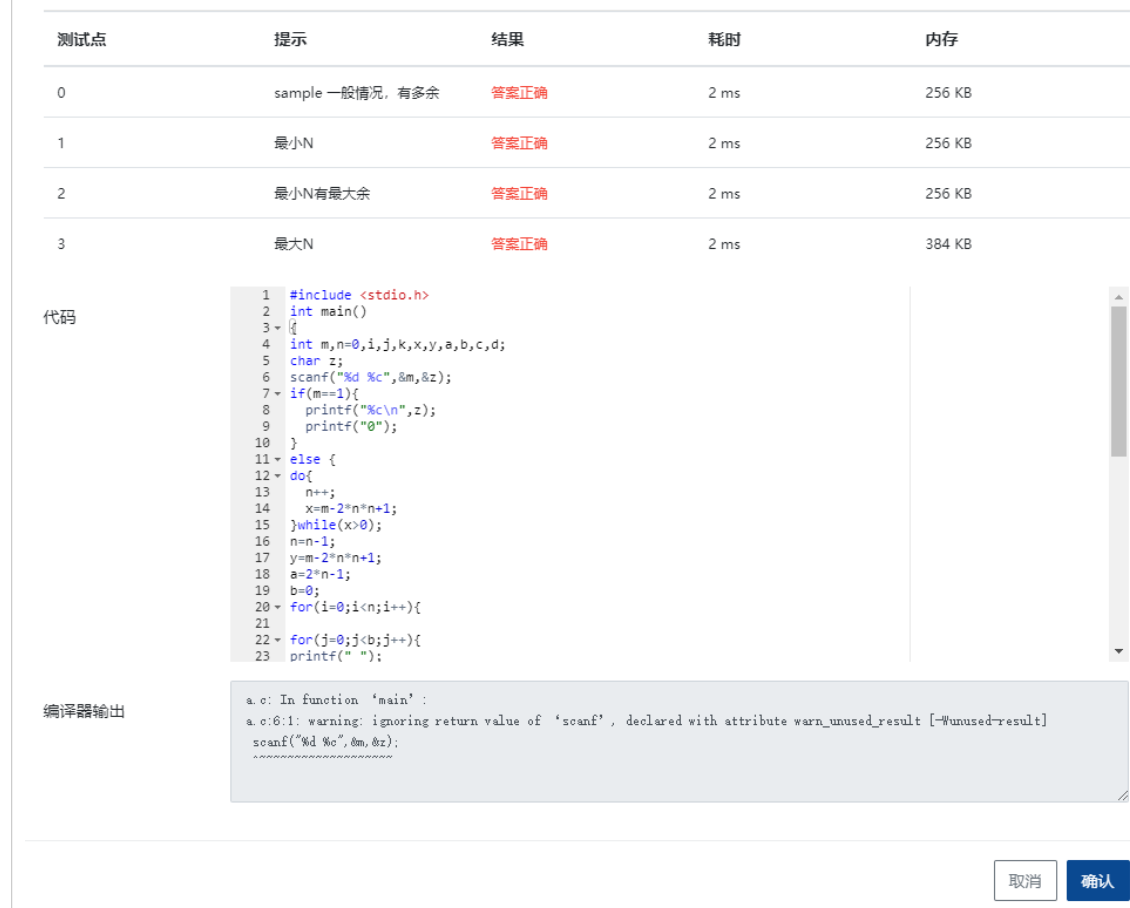题目2.7-1 币值转换
题目2.7-1 币值转换(20 分)
7-1 币值转换 (20 分)
输入一个整数(位数不超过9位)代表一个人民币值(单位为元),请转换成财务要求的大写中文格式。如23108元,转换后变成“贰万叁仟壹百零捌”元。为了简化输出,用小写英文字母a-j顺序代表大写数字0-9,用S、B、Q、W、Y分别代表拾、百、仟、万、亿。于是23108元应被转换输出为“cWdQbBai”元。
输入格式:
输入在一行中给出一个不超过9位的非负整数。
输出格式:
在一行中输出转换后的结果。注意“零”的用法必须符合中文习惯。
输入样例1:
813227345
输出样例1:
iYbQdBcScWhQdBeSf
输入样例2:
6900
输出样例2:
gQjB
1.实验代码
#include<stdio.h>
char shu(int x);
char wei(int count);
int main()
{
int count,number,n,i,j,k,x,y,d;
int a[9];
char b[16];
i=0;
scanf("%d",&number);
if(number==0){
printf("a");
}
else
do{ n=number%10;
number=number/10;
a[i]=n;
i++;
}while(number!=0&&i<=9);
k=i;
i=0;
d=0;
count=1;
for(j=0;j<k;j++){
x=a[i];
if(count==1&&x!=0){
b[d++]=shu(x);
}
if(count!=1&&count!=5&&count!=9&&x!=0){
b[d++]=wei(count);
b[d++]=shu(x);
}
if (x==0&&(count%4)>1){
if (y != 0) {
b[d++] = shu(x);
}
}
if(count==5){
if(x==0){
b[d++]=wei(count);
}
else
{
b[d++]=wei(count);
b[d++]=shu(x);
}
}
if(count==9){
if(x!=0);
b[d++]=wei(count);
b[d++]=shu(x);
}
y=x;
i++;
count++;
}
d=d-1;
for(d;d>=0;d--){
printf("%c",b[d]);
}
return 0;
}
char shu(int x)
{
if(x==0)
return 'a';
if(x==1)
return 'b';
if(x==2)
return 'c';
if(x==3)
return 'd';
if(x==4)
return 'e';
if(x==5)
return 'f';
if(x==6)
return 'g';
if(x==7)
return 'h';
if(x==8)
return 'i';
if(x==9)
return 'j';
}
char wei(int count)
{
if(count==9)
return 'Y';
if(count==8)
return 'Q';
if(count==7)
return 'B';
if(count==6)
return 'S';
if(count==5)
return 'W';
if(count==4)
return 'Q';
if(count==3)
return 'B';
if(count==2)
return 'S';
else
return 0;
}
2.设计思路
st=>start: 声明函数,定义变量
op1=>operation: 利用while和if语句来进行特殊类型的筛选
sub1=>subroutine: 利用自定义函数来实现依次输出
op2=>operation: 在利用for语句来进行判断
e=>end: 结束程序
st->op1->op2->sub1->e

3.本题调试过程碰到问题及解决办法
错误截图:
多次思考得出正确结果,并未保存错误截图
解决办法:
网上查询,询问同学!
4.运行结果截图




